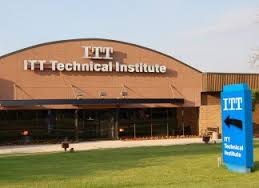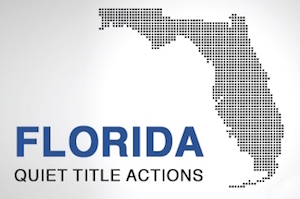Do you know what it means to rehabilitate federal student loans and why it is necessary? First, once a federal student loan goes into default, several consequences can occur including:
- Administrative wage garnishment;
- Income tax refund intercepts;
Do you know what it means to rehabilitate federal student loans and why it is necessary? First, once a federal student loan goes into default, several consequences can occur including:
 On August 26, 2016, the U.S. Department of Education banned ITT Technical Institute from enrolling new students who use federal financial aid. This is the result of several investigations into their recruiting, marketing and job placement practices. The loss of these funds may ultimately be the demise of ITT likely in a matter of weeks. The Chicago Tribune did a story here with more details.
On August 26, 2016, the U.S. Department of Education banned ITT Technical Institute from enrolling new students who use federal financial aid. This is the result of several investigations into their recruiting, marketing and job placement practices. The loss of these funds may ultimately be the demise of ITT likely in a matter of weeks. The Chicago Tribune did a story here with more details.
9/19/16 Update: Since ITT’s closure on September 7, 2016, we are now taking clients for representation to seek a discharge of their federal student loans (including Parent Plus federal loans taken by a parent for a student). New federal guidelines created following the closure of Corinthian go into effect on November 1, 2016 to allow for former students to potentially discharge debt due to fraudulent representations by the school in violation of state law.
It is too early to say whether former students of ITT will be able to assert a defense to repayment of their federal student loans. It’s possible because there are several open investigations into various ITT campuses and if they find evidence of fraud or illegal behavior, you may be eligible for relief. The DOE is expected to wrap up its final regulations regarding borrower defenses to repayment of federal student loans by the end of this year. We believe that the new regulations will expand the current environment which mostly only permit an administrative discharge when a school is closed within 120 days of your attendance and your credits are non-transferable.

Useful information can be obtained from the Consent Orders relating to improper debt collection activities obtained by the Consumer Financial Protection Bureau. Recent orders applicable to Fred Hanna, Encore Capital Group, Inc., Midland Funding, LLC, Midland Credit Management, Inc., Asset Acceptance Capital Corp., PRA, LLC, Porfolio Recovery Associates, Chase Bankcard Services, Santander Bank, N.A., Solomon & Solomon P.C., Westlake and Wilshire etc. can be found here on the CFPB site. (searchable filters).
Debt collectors are not permitted to provide false or deceptive information to you in their attempts to collect a debt. This may include the things they can do to you if you do not pay (such as take your home, sue you etc.). This may include who they are affiliated with. We are evaluating a case right now where the debt collector is private company. But they’ve told my client that they are the Department of Education. This is contrary to their website which we noted states no affiliation with the DOE. Basically, our marching orders are if what they say is not the whole truth and nothing but the truth, they run the risk of violating the law. This means if they try to explain your options, but leave perhaps the best one out – this would be a violation of the FDCPA, FCCPA and perhaps even unlicensed practice of law. All these consumer law violations give us excellent leverage to negotiate lower balances, better payment plans and sometimes even a write off of the entire debt.
This applies to all consumer debt. Auto finance, second mortgages, credit cards, signature loans and best of all student loan debt. When we are hired to settle any kind of debt we first take the time to educate our client on their consumer rights, what kinds of behavior can lead to violations and we have them document any phone calls they are receiving. Then we use all this to settle the debt.

Many of our recent bankruptcy clients report large amounts of business debt. This may be small business loans, credit cards run up to support a small business, or personal guarantees. Often the business is gone at this point and we are looking to file an individual bankruptcy. Filing a bankruptcy for a dissolved business is often an unnecessary and risky expense.
Sometimes our debtor client is married, and their spouse remains unaffected by the bankruptcy. Their marriage alone often provides the basis to protect their personal or real property by using a special exemption called Tenancy by the Entireties. In Florida, our homestead laws are quite broad and serve to protect the home. Most IRAs, SEP IRAs, 401ks and other retirement assets are fully protected as well. If the amount of business debt exceeds the consumer household related debt, our clients do not even have to comply with the rather stringent Means Test imposed by Congress in the bankruptcy reform act passed a few years back.
Business creditors are also often some of the most aggressive. They figure if you once made money, you will again one day. So they sue and obtain a judgment. But if you file bankruptcy at a low point in your life, you truly can start over. You can file bankruptcy whether or not the creditor has already obtained a judgment. It’s discharged all the same.
 Do I need to have possession to quiet title to property?
Do I need to have possession to quiet title to property?
No, in fact there is a process whereby we can file a Complaint for Unlawful Detainer along with the Quiet Title Action following a foreclosure sale or tax deed sale for instance. You do not need a separate eviction and you do not have to wait for the person to be out before you file to quiet title.
How long following a judgment against a mortgage company must I wait to quiet title?
Are you a slave to your private student loans? We have client after client coming to see us with huge private student loans that are not going away, despite years of throwing money at them. In fact, in most cases, the balances are larger, sometimes double what they used to be. Let us help you get these loan balances and monthly payments to something sustainable, affordable and with an end in sight.
While as an attorney it is difficult to tell your clients that perhaps their best option is not to pay, I just ran across this article titled “Top Ten Reasons You Should Stop Paying Your Private Student Loan” from the Huffington Post which agrees with taking such a strategic default. I have to say I agree with every one of their top ten reasons. Please take a moment and review the article. And we have taken this view for a while now, taking action on behalf of our clients to bring these unaffordable private student loans under control.
As HP points out, yes it will hurt your credit and that of any co-borrower. Private student loans won’t negotiate with you for the most part when you are current. They may start calling you demanding payment once you start missing payments. This is where the consumer laws come into play. Know your rights. Review our website for actions you can take now to preserve your claims. We file lawsuit for FDCPA, FCCPA and TCPA violations all the time. This can lead to substantial reduction in the amount owed on your private student loans.
ABC Action News ran a story about a Tampa student loan borrower tonight for whom we just filed an adversary lawsuit in bankruptcy court seeking an undue hardship. Unfortunately he was duped into what is now $164,000 worth of student loans for a worthless degree from IADT. Worst decision of his life. In our interviews we got the news journalist to understand and communicate what a fraud the accreditation process is. The differences between national and regional accreditation was a main focus of the story. We’ve been trying to get the word out on this for awhile now. Accreditation is not all equal. Our client’s degree is in IT – not basket weaving. But since it is from a nationally accredited school, this IT degree is essentially the same as a degree in basket weaving. Most employers and educators do not recognize it as a valid degree. If he wants to advance in his career he has to “do it all over again”. This means late nights studying, time out of the workforce, more student loans…
If you’d like to know more about why your nationally accredited school may not be what you think it is, see our earlier blog post Student Loan Nightmares at For-Profit Schools: Have accreditation agencies dropped the ball? For more info, please contact Arkovich Law